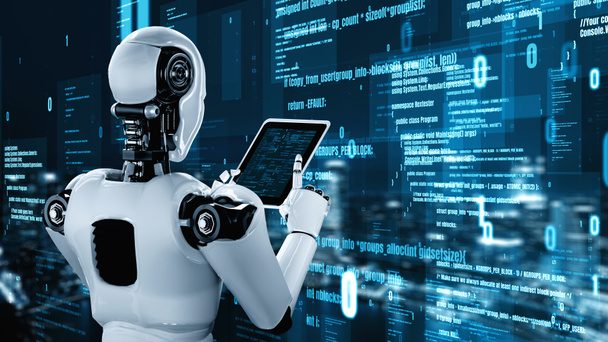Artificial Intelligence (AI) is a transformative technology that is changing the way industries operate and enhancing everyday life and generating innovation across a variety of disciplines. At its core, artificial intelligence (umělá inteligence) is the process of developing computers that are able to perform tasks that normally require human expertise. These include learning, reasoning, problem-solving perception, and language comprehension.
Types of AI
AI can be classified into two types: Narrow AI and General AI. Narrow AI, also known as Weak AI, is designed for specific tasks such as voice recognition, recommendation systems, or autonomous cars. These systems operate within a limited scope and excel at their designated capabilities, but they are not able to extend beyond their programmed capabilities. General AI, also known as Strong AI, represents a more advanced form of AI, with the ability to understand how to learn, apply, and use intelligence to a variety of tasks on a human scale. Currently, General AI remains largely theoretical and is a subject to ongoing studies.
Key Components of AI
Machine Learning (ML) is a subset of AI that involves the training of algorithms using large data sets to identify patterns and then make predictions or make decisions without programming explicit. Techniques such as supervised learning, unsupervised learning, as well as reinforcement learning, are central to ML.
Natural Language Processing (NLP) This area of AI is focused upon the interactions between human and computer. NLP helps machines understand the meaning, translate, and create human language, facilitating applications like chatbots and the translation of language, and even sentiment analysis.
Computer Vision The field of Computer Vision examines how computers interpret and process visual information from the world. Computer vision is utilized for facial recognition, object detection, and autonomous driving.
The Robotics field: AI is also crucial in robotics. It enables robots to perform complex tasks on their own. Robotics integrates AI and mechanical design to make robots that are capable of performing tasks from exploration to manufacturing.
Applications of AI
AI’s applications are numerous and varied. In healthcare, AI algorithms assist in diagnosing illnesses, personalizing treatments, and predicting the outcomes of patients. In the finance industry, AI is used for fraud detection, algorithmic trading, and customer service. It is also used in everyday activities. AI is the basis for virtual assistants such as Siri and Alexa and enhances shopping experiences by offering personalized suggestions, and optimizes logistics and supply chain management.
Ethical Considerations
As AI is evolving, ethical considerations are paramount. Concerns like data privacy as well as biases in algorithms employment displacement, and the potential for misuse of AI technologies need to be dealt with. Ensuring transparency, accountability, and fairness in AI systems is essential in reducing the risks and increasing confidence in AI applications.
Future Prospects
In the future, AI is full of potential. Continuous advances in AI research are expected to provide higher-quality, more efficient and integrated solutions in diverse areas. As AI technology continues to advance, it will undoubtedly play an integral role for shaping the next phase of human society, changing the way we live, work and communicate with each other.


